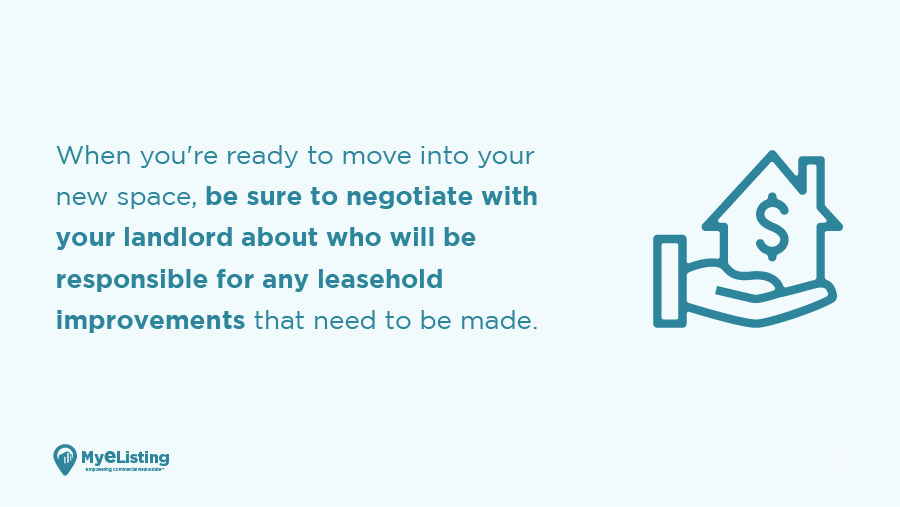The Dos and Don’ts of Leasing Commercial Property

Specializes in providing actionable insights into the commercial real estate space for investors, brokers, lessors, and lessees. He covers quarterly market data reports, investment strategies, how-to guides, and top-down perspectives on market movements.

Every business needs a home, and despite the recent work-from-home revolution, businesses are still looking for commercial property to lease. Owning commercial property for lease means you can collect rent over the time that you have the property, turning it into a valuable, passive investment.
However, whether you are the one that owns the commercial property for lease or the one leasing the property from the owner, there are things to do and avoid.
Here are the dos and don’ts of leasing commercial property.
Commercial Leases vs. Residential Leases
A commercial lease is a contract between a landlord and a tenant in which the tenant agrees to rent office or industrial space from the landlord. This type of lease typically lasts about three to five years (though some can go as long as ten) and comes with a number of clauses and conditions that both parties must agree to.
When it comes to negotiating a commercial lease, it’s important to understand the differences between this type of agreement and a residential lease.
A commercial lease is a legally binding contract and is not as easily broken as a residential lease. As such, both parties must adhere to the terms of the agreement. If either party breaches the contract, they may be liable for damages.
Commercial Lease Dos and Don’ts
Commercial leases can be complex and confusing, so it’s important to know what you’re getting into before signing one. Here are some do’s and don’ts to keep in mind:
#1 – Do Understand Your Lease Options

A lease, in its most basic form, is a contract between a landlord and tenant that outlines the terms of the rental agreement. Rent is the monthly payment made by the tenant to the landlord for the use of the property.
When you’re looking for a place to rent as a potential tenant, it’s important to understand your lease options. Each option, gross or net, balances the financial responsibility between tenant and landlord in different ways.
A net lease is a type of lease in which the tenant is responsible for paying their own utilities and property management fees. A gross lease is a type of lease in which the landlord covers all utilities and property management fees. The type of lease you choose will depend on your needs and budget.
#2 – Do Check Market Rents
When it comes to finding a place to rent, it’s important to check market rents in the area, so you have an idea of what’s fair. You don’t want to overpay, but you also don’t want to lower your offer and lose out on the place you want.
It’s important to negotiate with your landlord to come to an agreement that works for both of you.
#3 – Do Negotiate Leasehold Improvements

When you’re ready to move into your new space, be sure to negotiate with your landlord about who will be responsible for any leasehold improvements that need to be made.
Depending on the condition of the space, there could be a significant amount of work that needs to be done in order to get it up to your standards. You don’t want to be stuck with a hefty bill for repairs that should have been the landlord’s responsibility.
Be sure to get everything in writing as well, so there’s no confusion later on down the line.
#4 – Don’t Trust the Landlord’s Math Without Double Checking
Landlords often use their own math when it comes to calculating rent, square footage, and other factors related to a lease. However, tenants should not take the landlord’s math as factual.
It is always best to do your own research and calculations to ensure you get the best deal possible.
#5 – Don’t Forget to Check About the Safety of the Location
It’s important to check the safety of the location before you rent there. Make sure to research the area and find out if any recent incidents have been reported. If you’re not comfortable with the safety of the location, it’s best to find another place to lease.
#6 – Don’t Forget to Ask About What’s Included in the Lease

Don’t forget to ask about what’s included in the lease. This can include utilities, parking, and other amenities. You’ll want to know what’s included so you can budget accordingly.
Also, make sure that you get everything in writing. If it’s not written into the lease the way that you understand it, then it’s not a part of the agreement. Understanding this is incredibly important and a reason why working with a CRE attorney is always a good idea when leasing commercial property.
#7 – Don’t Forget to Check If There’s Enough Parking
When signing a commercial lease, it’s important to ensure that there will be enough parking available for your customers and employees. If you are unable to provide adequate parking, your business may suffer as a result.
Leasing commercial property is a big step for any business. Focus on identifying potential problems early and finding deals that let you minimize risks. That way, you can find the right place for your business to set up shop.
List & Browse Commercial Real Estate for Free on MyEListing.com!
You can list and browse commercial real estate for free right here on MyEListing.com.
Simply sign up for a free account and get unlimited access to accurate local market intelligence, customized property type alerts, comp software, and more.
Article Search
Share
All Article Categories








